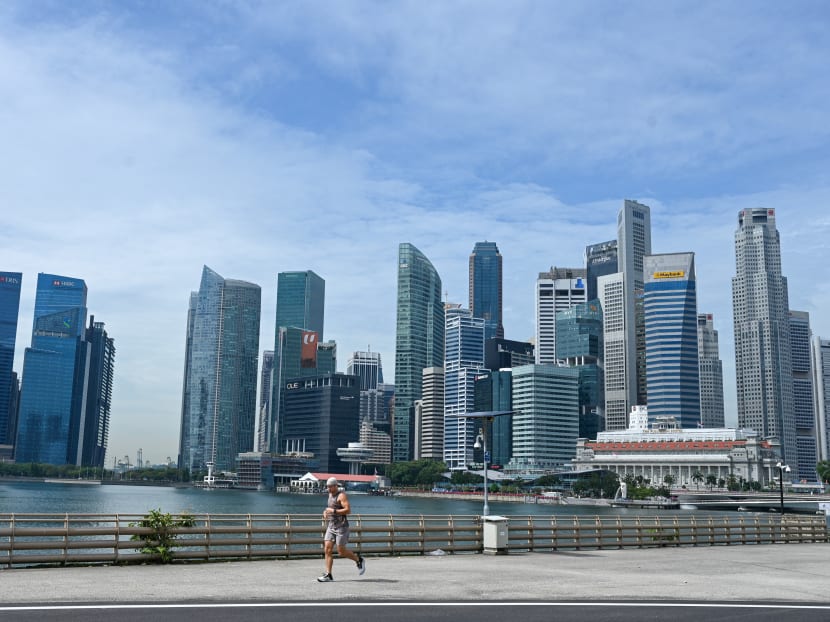Singapore's April core inflation rises to 3.3%, fastest in more than 10 years
SINGAPORE — Singapore’s core inflation accelerated to 3.3 per cent year-on-year in April from a previous 10-year high of 2.9 per cent in March, official data released on Monday (May 23) showed, driven by higher energy and food costs.

The headline consumer price index, or overall inflation, came in at 5.4 per cent year-on-year in April, the same as in March, as private transport inflation moderated.
SINGAPORE — Singapore’s core inflation accelerated to 3.3 per cent year-on-year in April from a previous 10-year high of 2.9 per cent in March, official data released on Monday (May 23) showed, driven by higher energy and food costs.
This is the highest since January 2012, when core inflation came in at 3.5 per cent.
The increase was driven by higher inflation for food, retail and other goods as well as electricity and gas, the Monetary Authority of Singapore (MAS) and the Ministry of Trade and Industry (MTI) said in a joint release.
The headline consumer price index, or overall inflation, came in at 5.4 per cent year-on-year in April, the same as in March, as private transport inflation moderated.
Core inflation excludes accommodation and private transport costs, which tend to be significantly influenced by supply-side administrative policies and are volatile.
INFLATION PICKS UP FOR MOST SECTORS
Food inflation increased from 3.3 per cent in March to 4.1 per cent in April as prices of non-cooked food and food services rose at a higher pace, said MAS and MTI.
Retail and other goods inflation picked up at a faster pace in April, coming in at 1.6 per cent from 0.4 per cent in March, as prices of clothing and footwear increased.
Inflation in electricity and gas surged to 19.7 per cent in April, from 17.8 per cent the previous month, on account of larger increases in electricity and gas tariffs due to higher fuel costs.
Meanwhile, services inflation dipped slightly to 2.5 per cent, from 2.6 per cent in March, as “airfares moderated due to the relaxation of Covid-19 test requirements for travel into Singapore, as well as some other travel destinations”, said MAS and MTI.
Accommodation inflation rose from 3.5 per cent to 3.9 per cent “alongside a stronger pace of increase in housing rents”, while private transport inflation fell to 18.3 per cent from 21.5 per cent due to smaller increases in car prices.
MAS and MTI said external inflationary pressures continue to be strong amid elevated global commodity prices, as well as ongoing supply chain frictions driven by both the Russia-Ukraine conflict and the regional pandemic situation.
“In the near term, heightened geopolitical risks and tight supply conditions will keep crude oil prices elevated,” it added.
“Prices of other commodities, such as food, are also expected to stay high amid supply-demand mismatches, as well as bottlenecks in global transportation and regional supply chains.”
On the domestic front, the labour market is expected to “remain tight and support a firm pace of wage increases over the course of the year”.
A greater pass-through of accumulating business costs to consumer prices is also likely to occur as demand improves, keeping core inflation “significantly above its historical average through the year”.
Core inflation is forecast to pick up further in the coming months, MAS and MTI said. However, it is expected to moderate towards the end of the year as “some of the external inflationary pressures recede”.
However, they cautioned that upside risks remain, including geopolitical and pandemic-related shocks.
“Meanwhile, with private transport and accommodation inflation expected to stay firm in the near term, headline inflation will pick up by more than core inflation this year,” they said.
Core inflation is projected to average 2.5 per cent to 3.5 per cent for the year, while headline inflation is expected to come in between 4.5 per cent and 5.5 per cent. CNA
For more reports like this, visit cna.asia.









